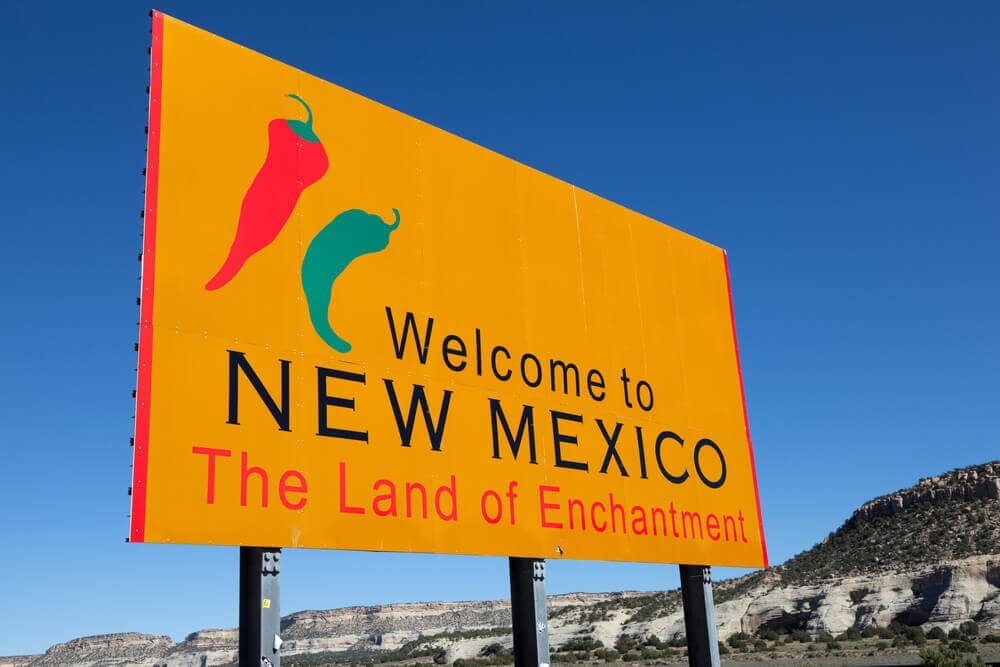How Your New Mexico Residency Affects Your Expat Taxes

Some states are known for taxing former residents even after they’ve moved away. One of the most notorious examples is New Mexico.
If you were previously a resident of New Mexico, they may still consider you a resident for tax purposes. This would mean that you are required to file New Mexico state taxes in addition to your US Federal Tax Return.
Here’s what you need to know.
New Mexico Residency Rules
You are considered a resident of New Mexico if either of the following is true:
- Your domicile is located in New Mexico
- You are physically present in New Mexico for at least 185 days during a single year (regardless of where your domicile is)
If either of these were true in a previous year, you may still be considered a resident of New Mexico even if they’re no longer true.
Am I a Resident of New Mexico?
To answer whether or not you are a resident of New Mexico, we need to take a closer look at the conditions listed above. What exactly is a domicile? What does it mean to be physically present in New Mexico?
Domicile
Your domicile is the place you intend to use as your home indefinitely. It is what most people mean when they refer to a “home” at all. You may own or rent your domicile, or it may be a place where you are allowed to stay free of charge, such as a relative’s house.
For example, if you own a house and use it as your primary place of residence, that is your domicile. If you travel to another state for business and rent a hotel room for the duration of your trip, that hotel does not become your residence. You do not intend to remain there indefinitely—you will return to your domicile once your trip is over.
Physical Presence
As mentioned above, you are considered a resident of New Mexico if you are physically present in the state for at least 185 days in a single year. To determine this figure, you should only include days when you spent a full 24 hours in New Mexico.
For example, if you lived and worked in New Mexico for more than six months in a year, those days would undoubtedly qualify for this standard. If you lived in Texas, however, and only entered New Mexico to work during the day, those days do not count toward the 185 figure.
Note: the 185 days do not have to be consecutive.
How to Terminate Your Residency in New Mexico
New Mexico is notorious for making it difficult for expats to abandon residency. If you were ever considered a resident of New Mexico, they could continue taxing your worldwide income even if you moved away years ago.
To terminate your residency in New Mexico, you will have to prove that you’ve established a domicile in another state or country—and that you have no intention of returning.
This can be difficult. New Mexico has a reputation for using even the slimmest evidence to argue that you still have ties to the state. They might claim you’re still a resident if:
- You have a New Mexico driver’s license
- Your vehicle is registered in New Mexico
- Your spouse or child lives there
- You’re registered to vote there
- You have a bank account there
- You own property there
- You maintain a mailing address there (even if you’re using the address of a friend or relative)
For Americans living abroad, severing all ties to New Mexico can be especially daunting.
The best way to combat this is to erase as many connections to New Mexico as you can. This may mean:
- Selling your house or any other property you own in New Mexico
- Canceling your New Mexico driver’s license
- Closing any financial accounts you have open in New Mexico
- Not using a New Mexico address for mail delivery
You’ll need to keep a clear record of these changes as well, such as official documents. Then, establish clear evidence of your new residency, such as buying a home or opening a bank account in another country.
Some expats find it easier to transfer their residency to another US state before moving abroad rather than terminating New Mexico residency while overseas.
Note: If you terminate your New Mexico residency during the tax year, you will still have to file a New Mexico tax return for that year as a part-year residence.
What If I Have Income from a New Mexico Source?
In most cases, terminating your New Mexico residency will remove the obligation to file a state tax return. However, if you receive income from a New Mexico source, you may still be required to file taxes on that income as a non-resident.
Some common examples of New Mexico-source income include:
- Salary, wages, or benefits from a business in New Mexico
- Self-employment income for services performed or products sold in New Mexico
- Rents or royalties from property located in New Mexico
- Ownership interest in a business in New Mexico
- Income from intangibles such as patents, copyrights, franchises, trademarks, or licenses used in New Mexico
If you have investment income from a New Mexico source, you generally won’t have to file a state tax return unless you are also involved in a New Mexico business.
If you receive pension distributions from a New Mexico source, you only have to report it if you receive other forms of New Mexico source income as well. And even if you are required to report it, you will never have to pay taxes on that income. Under federal law, all US states are prohibited from taxing the pensions of non-residents.
Need Help with your State or Federal Expat Tax Return?
If you have any questions about your state or federal expat tax return, or if you would like to learn more about our expat tax services, please contact us. At Greenback Expat Tax Services, we specialize in helping expats manage their US tax obligations. Just contact us, and we’ll be happy to help you in any way we can.
In fact, we can even prepare and file your expat taxes on your behalf.
Learn more about our services and flat-fee pricing to file your expat tax taxes.
Dreading the last minute scramble of pulling together your tax documents? Despair no more!



